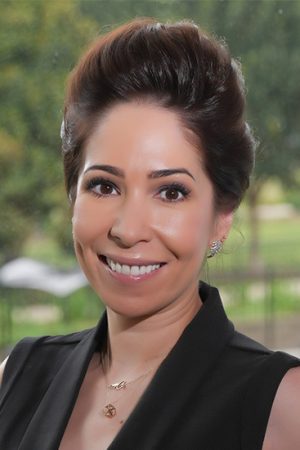Christine D. Gagnon

Christine D. Gagnon
Background
Christine D. Gagnon serves as chief financial officer of Roha Group Inc., a New York–based private equity firm, and as founder and chief executive officer of CDG Holdings Group, the holding company of TEDxCatawba, Odin Frigg, Ivar, and Leif Ventures. A seasoned executive, she most recently held the roles of IT finance transformation leader and head of finance for generative AI at Honeywell International Inc., based at its global headquarters.
Previously, Gagnon served as chief financial officer of African Asset Finance Company and held board and audit committee roles with Raxio Group and its subsidiaries—portfolio companies of Roha Group Inc. She is a certified public accountant with extensive experience across financial services, private equity, and technology sectors, having led functions in accounting, finance, treasury, credit, legal, risk, and operations.
Her accomplishments have been recognized by several industry honors, including Monitor’s Top 50 Women in Equipment Finance (2021), Acquisition International’s Most Innovative Venture Capital & Investment CFO (2024), and Most Influential Emerging Market Asset Finance Company CFO (2023).
Gagnon is also a practitioner in residence at the Walker College of Business at Appalachian State University, serving as an in-house expert in accounting. She has held faculty roles at the University of California, Irvine (undergraduate and Executive MBA programs), and California State University, Fullerton. She currently serves as faculty advisor for Beta Alpha Psi (Epsilon Kappa Chapter) and is a member of Beta Gamma Sigma.
Over her 20+ year international career, Gagnon has lived and worked in Europe, Africa, and the United States. Her previous roles include EMEIA chief operating officer and chief financial officer, and global head of go-to-market, financial crime, and COO for Financial Services Africa at Ernst & Young LLP; first vice president in the offices of the CEO and vice chairman at OneWest Bank; and senior manager at PricewaterhouseCoopers LLP.
She is a strategic advisor to the Meltzer Center at the NYU School of Law and a member of MIT’s Work of the Future Working Group (Generative AI), Women Defining AI (WDAI), the Senior Women in Private Equity (SWIPE) Network, and the Worldwide Women’s Association (WWA). She volunteers with Hire Heroes USA and serves on the boards of The Partnership to End Homelessness and Humans for Healthcare.
An active member of the TED community, Gagnon is the founder and licensee of TEDxCatawba and has served as a speaker coach for TEDxColumbiaUniversity and TEDxLondonBusinessSchool.
She graduated magna cum laude with distinction from the University of Connecticut with a Bachelor of Science in Accounting, a Master of Science in Accounting, and a Master of Business Administration. She has also completed executive education at Harvard Business School and Stanford University, and most recently earned a Master of Legal Studies from the Washington University School of Law.
Research Interest
Gagnon’s research explores how financial models must evolve in response to the rapid advancement of artificial intelligence—from today’s generative systems to the future of artificial general intelligence (AGI) and superintelligence. She argues that traditional ROI frameworks, designed for static tools and human-exclusive labor, are inadequate in a world where AI functions as both infrastructure and synthetic labor.
Drawing on the work of AI researcher Blaise Agüera y Arcas, who frames intelligence as emergent and distributed across human and machine systems, Gagnon investigates how enterprises can quantify AI’s role in decision-making, strategy, and knowledge production. Her research introduces new frameworks to reflect AI’s economic contribution, particularly the concept of synthetic labor as a measurable input in cognitive output and enterprise value.
Through the development of a Cognitive Finance model, she challenges legacy accounting structures and proposes a new approach that recognizes the entangled nature of human and machine cognition. Her work aims to inform CFOs, boards, investors, and enterprise leaders as they navigate strategic decisions in a world where intelligence is no longer solely human—and no longer invisible on the balance sheet.